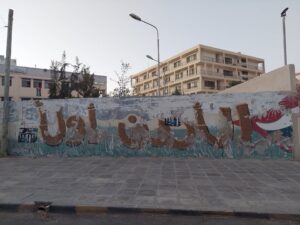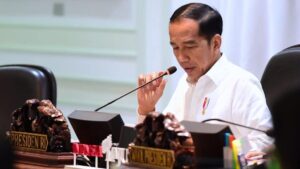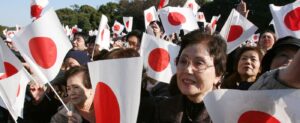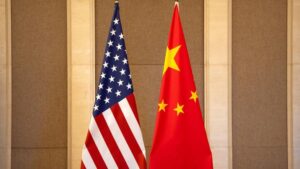R2P in Indonesia’s Response towards the Myanmar Crisis
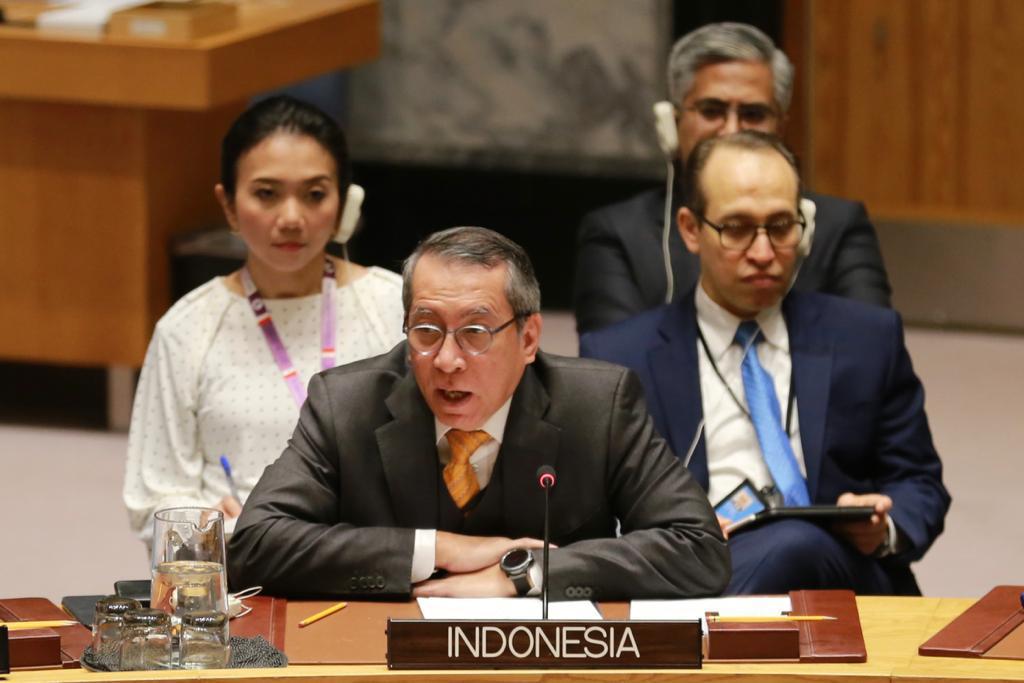
Illustration of Permanent Representative of Indonesia to the UN, Ambassador Dian Triansyah Djani. Photo: Kemlu RI
How has Indonesia been contributing to the protection of the people of Myanmar in the face of the imminent ‘human rights catastrophe’? The concern on human rights and the compassion that flows in the hearts of those who believe in humanity may cause them to expect that the misery of the Burmese people should be ended as quickly as possible. Indeed, signs of severity of human rights violations in Myanmar are clear and it even seems likely that crimes against humanity are occurring.
Responsibility to Protect (R2P), as an international norm, calls on the international community to protect human lives from such atrocity crimes. Although R2P has not been internalized in ASEAN, it has a significance in international law which demands ASEAN Member States to observe it particularly amid the current event in Myanmar. Indonesia is one of those in the international community expected to play its role in contributing to resolving the issue. Therefore, this article seeks to elaborate on how Indonesia’s response towards the crisis in Myanmar reflects R2P. It would be misleading to assume that R2P is merely associated with military intervention and it would also be misleading to assume that R2P is not present in Indonesia’s efforts.
The Great Debate on Responsibility to Protect (R2P)
First of all, how significant is R2P in international law? Whether one believes that R2P is nothing new in talking about international human rights norms or the other way around, it is undeniable that R2P indeed has legal basis in international law—which therefore compels the international community to be more committed towards human rights protection.
One argues that R2P is no more than a concept, principle, emerging norm or strong political commitment that reiterates the importance of the already existing human rights norms in international law concerning genocide, war crimes, crimes against humanity, and ethnic cleansing (Rahayu, 2012, p. 135). Human rights norms on the prohibitions of genocide, torture and slavery are jus cogens (Rahayu, 2012, p. 135). Hence, the international community would be required to actively participate in preventing such crimes from occurring with peaceful means, which has already been written in Chapter VI of UN Charter. So, when a breach in such peremptory norm occurs, it is obligatory for the international community to act to enforce the rule of law (Rahayu, 2012, p. 135).
On the other hand, there is also an argument which believes that R2P is a new norm that fits to be considered as an international customary law. Such argument uses the explanation of Grotian Moment, where R2P can be compensated from the requirements of opinio juris and the consistent and prevalent state practice, for an emerging custom would not need vast amounts of practice by states and according to the ICJ, the UN resolution of the 2005 World Summit could be a proof of state practice or custom, which is enough to validate R2P (Poerana & Handayani, 2021, p. 61-62). Nevertheless, those who argue that R2P qualifies to serve as an international customary law also believe that the emphasis of R2P is on prevention rather than reaction (Poerana & Handayani, 2021, p. 72).
The Severe Situation in Myanmar
Based on the explanation above, the situation in Myanmar urges the international community, particularly regional actors surrounding Myanmar such as its neighbors, including Indonesia and ASEAN to act in order to help stop the gross human rights violations. Indonesia’s efforts, possibly also shared by other states as well, to help end the bloodshed in Myanmar are quite dependent on the roles of the UNSC and ASEAN. It is written in the UN Charter that regional agencies, in this case ASEAN, should complement the role of the UNSC concerning peace and security by attempting for pacific local dispute settlements (United Nations, 1945, art. 52). Moreover, regional organizations are not permitted to take any further action without UNSC authorization (United Nations, 1945, art. 53).
Divisions in the UNSC could be seen as China blocked sanctions intended for Myanmar and instead calling for a ‘constructive’ effort (Barrett, 2021). In ASEAN several Member States such as Cambodia, Laos, Vietnam as well as Thailand are said to have been quite reluctant to address the issue (Pongsudhirak, 2021). Therefore, as a unitary actor in the international community, Indonesia’s capacity goes as far as utilizing diplomacy by lobbying fellow states as well as parties involved in the Myanmar issue and raising its concern on the issue in ASEAN and UN General Assembly. Although Indonesia agrees that a meaningful action towards the issue in Myanmar is needed, it also agrees that constructive efforts are the best solution.
After the coup d’état on February 2021 by the military Junta, which overthrew the democratically elected leaders, Aung San Suu Kyi and Win Myint, the situation intensified as peaceful protesters kept defying the Junta. Michelle Bachelet, the UN High Commissioner for Human Rights, made a statement on April 13 2021, calling for the halt of gross human rights violations and alleged crimes against humanity (OHCHR, 2021). She further expressed her fear that the situation in Myanmar might lead to ‘another Syria’ (OHCHR, 2021). Indeed, by May 17 2021, 800 people were reported to have been killed in the tensions between the civilians and the Junta (Reuters, 2021). The presence of local ethnic armed groups in Myanmar that join the fighting is supposedly a factor that contributes to the intensification of the conflict. Ethnic armed groups in Myanmar have been involved in the tensions, which then led to indiscriminate attacks from the Junta (International Crisis Group, 2021).
It certainly has been a complex situation in Myanmar after a coup; the military and civilians distrust each other and there is no legitimate government to unite and reconcile them. Laetitia van den Assum, a former diplomat representing the Netherlands to Myanmar and other ASEAN countries, believes that it was a failed coup due to the opposition of the Burmese people (van den Assum & Chutikul, 2021). From such perspective, it is obvious that no legitimate authority is present. The main point of the problem that is obvious right now is the demand of the civilians to cancel the coup and return the elected government to power which has been denied by the military.
The Junta considers the National Unity Government (NUG), consisting of those opposing the coup, as terrorists (Strangio, 2021). While the NUG, together with those Burmese civilians opposing the military Junta, are continuously refusing to submit to the authority of the Junta. Moreover, there is currently rivalry between the military Junta and NUG in gaining international recognition of their legitimacy as the official government of Myanmar (The Economist, 2021). This has caused fear that it may lead to a civil war. Although the minority and the majority groups in Myanmar unite, if tensions between the military Junta and the civilians as well as armed groups get even worse and peaceful resolution between the two fails to be achieved, Myanmar can indeed become the next Syria.
It is important to realize that R2P has been founded upon the solemn respect for human rights. As Kofi Annan said in a statement, which could pretty much depict the spark of the emergence of R2P, that the events downgrading human rights in Rwanda and Srebrenica had “offended every percept of our common humanity” (United Nations, n.d.). Further, according to Glanville, the concept of R2P is endorsed by the cosmopolitan argument; it believes that a threat to humanity in a certain part of the world is a threat to humanity everywhere, which he simplifies into the phrase ‘our common humanity’ (Glanville, 2010, p. 295). Therefore, it is supposedly right to say that valuing human lives is indeed at the core of the goal of R2P amid deadly conflicts.
Indonesia’s Efforts in Myanmar Crisis
Indeed Indonesia is concerned about the human rights of the people of Myanmar. In an informal ASEAN Foreign Ministers Meeting on March 2 2021, Indonesia’s Foreign Minister, Retno Marsudi addressed the need for the access for humanitarian relief to reach the civilians and called for release of political prisoners as well as restoration of democracy, stability and the prioritization of the interests of the Burmese people (Yusof & Siregar, 2021). Indonesia has been one of the several ASEAN Member States which boldly called for the release of political prisoners. She further mentioned the necessity of the freedom of opinions, dialogue and communication in a democracy (Yusof & Siregar, 2021). She also expressed her belief that ASEAN principle on democratic values, good governance, the rule of law, and the respect for human rights is no less important than the non-interference principle (Yusof & Siregar, 2021). Moreover, Indonesia was among the ASEAN Member States which voted in favor of arms embargo to Myanmar in the General Assembly on June 18 in order to reduce the severity of the violence in Myanmar (Lederer, 2021).
Mdm. Marsudi has made it clear that Indonesia seeks to contribute to the efforts in resolving the issue in Myanmar in a constructive manner without interfering in the domestic affairs of Myanmar and in a manner that prioritizes the safety and well-being of the people of Myanmar (Sekretariat Nasional ASEAN-Indonesia, 2021). Indeed Indonesia then called for an ASEAN meeting after the coup occurred and this was preceded with shuttle diplomacy initiated by Mdm. Marsudi, where she reached out to Thailand and Brunei Darussalam with the intention to synchronize ASEAN countries’ perceptions towards the issue in Myanmar (Strangio, 2021). It also attempted to engage both the Junta and its opposition. This could be seen as Mdm. Marsudi managed to talk with military-appointed foreign minister, U Wunna Maung Lwin, about Indonesia’s concern on Myanmar (Tambunan, 2021). She also sought to visit Naypyidaw in order to hold talks with Committee of Representing Pyidaungsu Hluttaw (CRPH), which initiated the establishment of NUG, yet the visit was postponed due to the situation in Myanmar (Liputan6.com, 2021). Later in the ASEAN meeting on April 24, the Junta leader, Min Aung Hlaing, was invited.
What can be seen from Indonesia’s behavior towards the Myanmar crisis is that Indonesia has been persistent with constructive efforts and non-interference while at the same time recognizing that gross human rights violations and probably even crimes against humanity are already happening. Indonesia has been well aware that protecting human lives amid what is happening in Myanmar is crucial and addressing the driver of the conflict, which is a failed transition of a legitimate government, is equally crucial. It would be useless to only focus on temporary protection of human lives; it is also important to strive for a durable solution, which would also mean durable protection for the people of Myanmar. In order for that to be achieved, Myanmar needs a stable government.
This can only be pursued with dialogue between the military and their opposition for it is a right of Myanmar as a country to determine its own fate and they will need to achieve a consensus even though currently the situation is uncertain. Indonesia avoids making the situation even more complicated than it already is. In the World Summit Outcome Document, it is stated that R2P is to be implemented ‘on a case-by-case basis’ (United Nations, 2005). This means the implementation depends on the context of the situation. As has been previously mentioned, prevention is a priority in R2P. Prevention efforts are possible to be done at all stages of mass atrocity crimes yet the worse they get, the more difficult it becomes to implement preventive efforts (Cooper, Kohler, & Kohler, 2009, p. 204). Indeed, Mdm. Marsudi has been urging for the quick implementation of the five-point consensus resulting from the ASEAN meeting aforementioned. She believes that slow progress in the implementation does not benefit ASEAN in its efforts to resolve the issue (Costa, 2021).
Conclusion
In conclusion, as Indonesia has been trying to prioritize the well-being and safety of the people of Myanmar in its efforts in helping to resolve the issue, it indeed reflects the very essence of R2P. Within the limited scope of its capacity, Indonesia seeks to approach the issue constructively to prevent the situation from getting farther from being resolved while at the same time seeking to address the issue with the sense of urgency for the lives of the Burmese people are at risk. R2P places value on human lives and therefore efforts in its implementation should be done in the best interest of protecting human lives from mass atrocity crimes. This then makes prevention a priority in R2P for as violence intensifies, it would possibly be harder to reach peaceful resolution.
References:
Barrett, C. (2021, April 1). ‘A bloodbath is imminent’ in Myanmar but China blocks UN sanctions. Retrieved August 6, 2021, from https://www.smh.com.au/world/asia/a-bloodbath-is-imminent-in-myanmar-but-china-blocks-un-sanctions-20210331-p57fuw.html
Cooper, R., Kohler, J. V., & Kohler, J. V. (2009). Building Structures for Peace A Quaker Lobby Offers Strategies for Peacemakers. In Responsibility to protect: The global moral compact for the 21st century (1st ed., pp. 204-218). New York, NY: Springer.
Costa, T. A. (2021, August 2). Indonesia urges Myanmar to approve appointment of ASEAN envoy. Retrieved August 6, 2021, from https://www.reuters.com/world/asia-pacific/indonesia-urges-myanmar-approve-appointment-asean-envoy-2021-08-02/
The Economist. (2021, July 24). Myanmar’s underground civilian rulers are struggling for recognition. Retrieved August 5, 2021, from https://www.economist.com/asia/2021/07/24/myanmars-underground-civilian-rulers-are-struggling-for-recognition
Glanville, L. (2010). The international community’s responsibility to protect. Global Responsibility to Protect, 2(3), 287-306. doi:10.1163/187598410×500408
International Crisis Group. (2021, June 28). Taking aim at the Tatmadaw: The new armed resistance to Myanmar’s coup. Retrieved August 7, 2021, from https://www.crisisgroup.org/asia/south-east-asia/myanmar/b168-taking-aim-tatmadaw-new-armed-resistance-myanmars-coup
Lederer, E. M. (2021, June 18). UN assembly condemns Myanmar coup, calls for arms embargo. Retrieved August 6, 2021, from https://apnews.com/article/united-nations-general-assembly-united-nations-myanmar-business-global-trade-72dbb95927b735de2b83dc1a85abdd72
Liputan6.com. (2021, February 25). Menlu Retno Marsudi: Indonesia Siap Komunikasi dengan Militer Myanmar Dan CRPH. Retrieved August 5, 2021, from https://www.liputan6.com/global/read/4491738/menlu-retno-marsudi-indonesia-siap-komunikasi-dengan-militer-myanmar-dan-crph
OHCHR. (2021, April 13). OHCHR | Intensifying widespread, systematic slaughter by Myanmar military must be halted – Bachelet. Retrieved from https://www.ohchr.org/EN/NewsEvents/Pages/DisplayNews.aspx?NewsID=26989&LangID=E
Poerana, S. A., & Handayani, I. (2021). Establishing the Status of Responsibility to Protect (R2P) as Customary International Law and Its Role in Preventing Mass Atrocities. Padjadjaran Journal of International Law, 5(1), 55-80. Retrieved from http://jurnal.fh.unpad.ac.id/index.php/pjil/article/view/362
Pongsudhirak, T. (2021, August 6). ASEAN lags behind Myanmar curve. Retrieved August 6, 2021, from https://www.bangkokpost.com/opinion/opinion/2160667/asean-lags-behind-myanmar-curve
Rahayu. (2012). EKSISTENSI PRINSIP ‘RESPONSIBILITY TO PROTECT’ DALAM HUKUM INTERNASIONAL. MMH, 41(1), 128-136. Retrieved from https://ejournal.undip.ac.id/index.php/mmh/article/view/4212
Reuters. (2021, May 18). Myanmar activists say more than 800 killed by security forces since coup. Retrieved August 7, 2021, from https://www.reuters.com/world/asia-pacific/myanmar-activists-say-more-than-800-killed-by-security-forces-since-coup-2021-05-18/
Sekretariat Nasional ASEAN-Indonesia. (2021, February 17). Sekretariat Nasional ASEAN – Indonesia. Retrieved from https://setnas-asean.id/news/read/berkunjung-ke-brunei-menlu-ri-bahas-upaya-asean-tanggapi-isu-myanmar
Strangio, S. (2021, March 22). Indonesia, Malaysia call for urgent ASEAN Summit on Myanmar. Retrieved August 5, 2021, from https://thediplomat.com/2021/03/indonesia-malaysia-call-for-urgent-asean-summit-on-myanmar/
Strangio, S. (2021, April 27). Assessing the outcome of ASEAN’s special meeting on Myanmar. Retrieved August 6, 2021, from https://thediplomat.com/2021/04/assessing-the-outcome-of-aseans-special-meeting-on-myanmar/
Strangio, S. (2021, May 11). Myanmar junta labels shadow government ‘Terrorists’. Retrieved August 7, 2021, from https://thediplomat.com/2021/05/myanmar-junta-labels-shadow-government-terrorists/
Tambunan, L. (2021, February 24). Kudeta Myanmar: Menlu RI bertemu menlu Myanmar, aktivis prodemokrasi protes keras. Retrieved August 5, 2021, from https://www.bbc.com/indonesia/dunia-56178190
United Nations. (1945, October 24). Chapter VIII: Regional arrangements (Articles 52-54). Retrieved from https://www.un.org/en/about-us/un-charter/chapter-8
United Nations. (2005). 2005 World Summit Outcome (A/RES/60/1). Retrieved from United Nations website: https://www.un.org/en/development/desa/population/migration/generalassembly/docs/globalcompact/A_RES_60_1.pdf
United Nations. (n.d.). United Nations office on genocide prevention and the responsibility to protect. Retrieved from https://www.un.org/en/genocideprevention/about-responsibility-to-protect.shtml
Van den Assum, L., & Chutikul, K. (2021, April 21). When to admit a coup has failed. Retrieved August 7, 2021, from https://www.bangkokpost.com/opinion/opinion/2102939/when-to-admit-a-coup-has-failed
Yusof, A., & Siregar, K. (2021, March 2). ASEAN must reiterate guiding principles when it comes to situation in Myanmar: Vivian Balakrishnan. Retrieved August 5, 2021, from https://www.channelnewsasia.com/asia/myanmar-asean-vivian-balakrishnan-principles-unity-democracy-252176
Maria Frederika is an International Relations fresh graduate from President University. She can be found on Instagram with the username @mariafredt.

